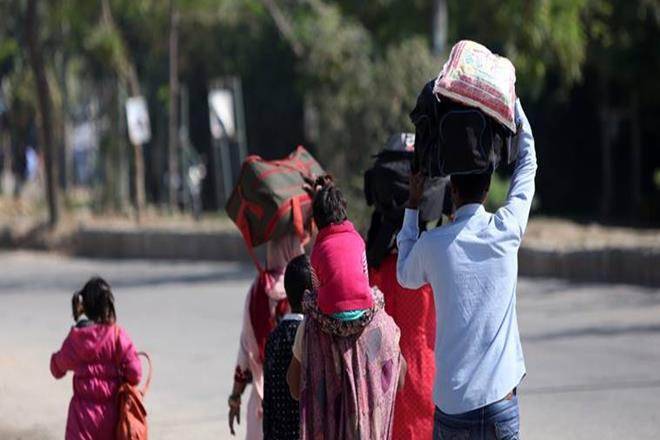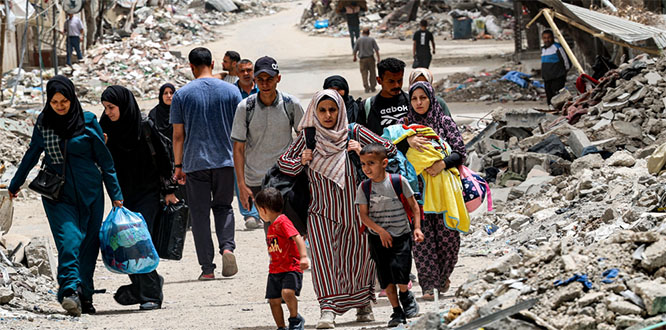
As the country suffers the threat of death and disease, financial struggle looms over it. There has been a huge loss for several of the economy. The government has issued aid, however, it is insufficient and neglects the unorganized sector entirely.
The estimation of the government, standing at Rs 1,250 crore, and is not close to what is needed by the people. Additionally, it does not aid those who don’t come under government schemes, meaning a huge chunk of the unorganized and industrial sector.
The financial crisis in India due to COVID is a many headed demon. So many different issues have arisen since the start of the pandemic, and the people of India are suffering under the financial burden.
Sudden shifts
Since the beginning of the pandemic, the word ‘unprecedented’ has been used innumerable times. Problems arrive suddenly, with no warning. People are losing their jobs all at once after years of working in the same place.
With the magnitude of the death toll, many a times the sole breadwinner of the house passes away. This leaves the family floundering, looking for jobs and trying to keep mouths fed.
People who are newly unemployed and unable to find jobs in the same industry are left confused. They have a skillset that employers are not looking for and eventually, they have to resort to unskilled labor which gives them lower wages.
Warning signs
The fact is that the people are suffering. The numbers back it up. There has been a 15 to 20% increase in poverty since the pandemic began. This means more than 23 crore people have slipped below the poverty line.
Unemployment has increased, too. 1.5 people have been lost their jobs, and those who continue to be employed face lowered salaries. The per capita income of the country has lowered by 16.8% to what it was in January of 2020.
Within 2020, there was an increase in people partially withdrawing funds from their Employee Provident Fund accounts. While it was 54 lakh people in 2019, 2020 saw 1.27 crore people doing the same.
According to RBI, there had been an 81.5% increase in that loans against gold jewelry by Scheduled Commercial Banks in March in comparison with the same last year.
MFIs, MSMEs suffer losses
MFIs (Micro finance Institutions) cater to the poorer sections of Indian society. The lockdowns have has adverse effects on the functioning of NBFCs and MFIs. With the poor already suffering through unemployment and steep hospital bills, this too has caused a bad hit.
Some sectors are faring worse than others. These industries thrive on travel, face to face interactions and consumerism. Retail, MSME, and hospitality are some of them.
The pandemic has resulted in the closure of 15-20% of the MSMEs in India. Large scale supply chains are taking away their customers as they are not able to operate as usual during the pandemic. If the situation continues, there could be a much larger percentage of MSMEs closed during the pandemic.
Small businesses run into trouble
Small businesses like family run stores are facing trouble getting customers and keeping their shops open. The lockdown hours put a huge dent in the time they can sell to people. Shops that don’t count as ‘essentials’ often cannot open at all.
Chain supermarkets and other shops are seeing more traffic as these small businesses get neglected. Without their livelihood, the threat of COVID increases as they would not be able to afford the hospital bills and medication.
Sellers over the internet find it difficult to post packages as delivery services do not function everywhere due to COVID. Small businesses are losing customers at a large scale.
Social workers rise to the occasion
While the situation is dire, social worker and organizations have taken the initiative to help people. All over India, social workers and volunteers are assisting on everything from grocery packages to cremations.
The workers help with transportation, reservation of beds, intricacies of the Ayushman card, ensuring the patients and the family members staying with them are fed, etc. With the ongoing crisis with the bodies piling up with no one to deal with them, social workers are also burying and cremating bodies.
Not just this, but they are also helping people who are not infected, but have been affected by the pandemic. Distributing food, rations etc. to those in need is another task they perform.
However, without proper government aid to the poorer sections of society, there is no saying how bad the situation could get.








Comments
Add new comment